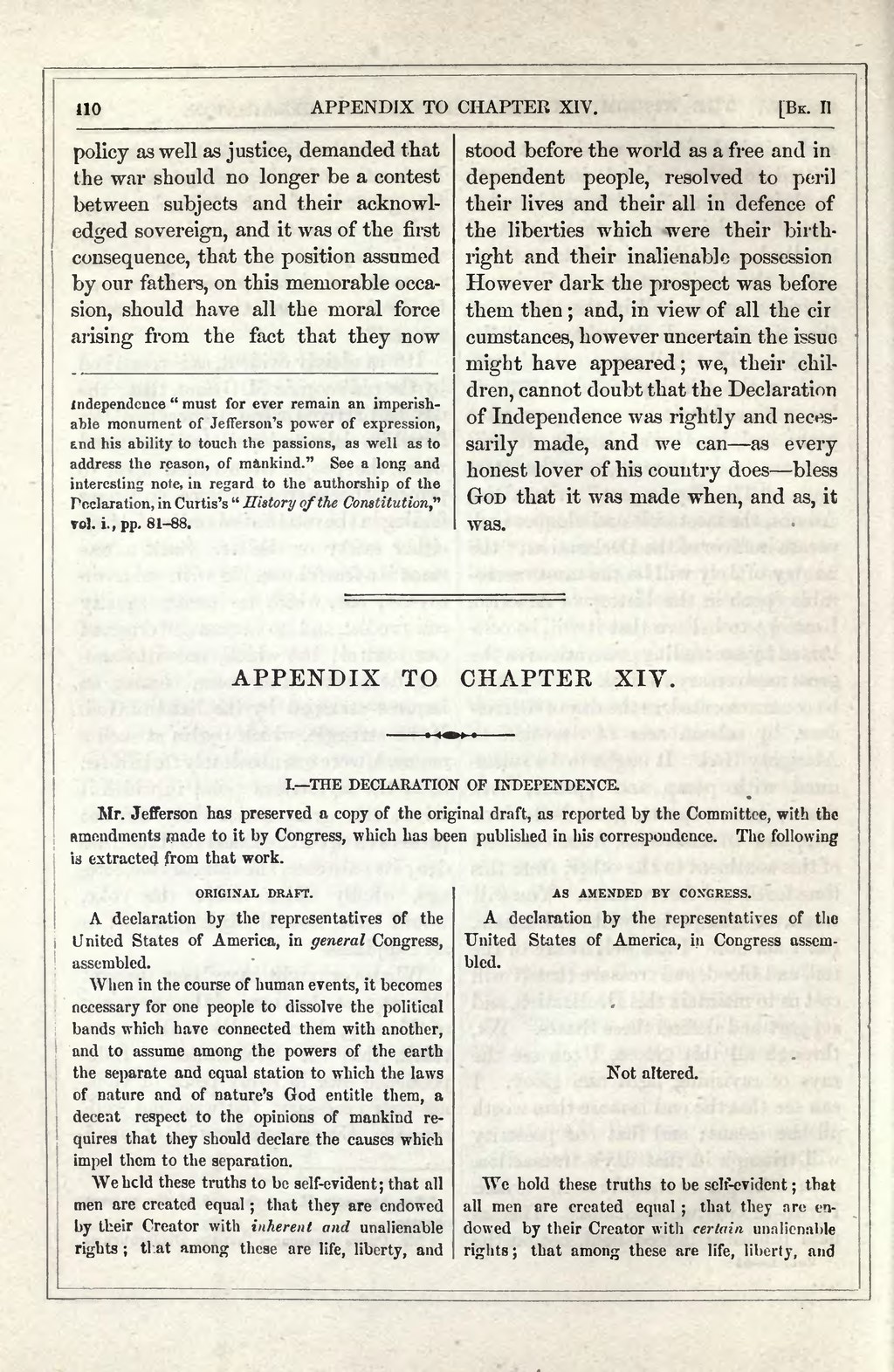policy as well as justice, demanded that the war should no longer be a contest between subjects and their acknowledged sovereign, and it was of the first consequence, that the position assumed by our fathers, on this memorable occasion, should have all the moral force arising from the fact that they now stood before the world as a free and in dependent people, resolved to peril their lives and their all in defence of the liberties which were their birth-right and their inalienable possession However dark the prospect was before them then; and, in view of all the circumstances, however uncertain the issue might have appeared; we, their children, cannot doubt that the Declaration of Independence was rightly and necessarily made, and we can—as every honest lover of his country does—bless God that it was made when, and as, it was.
APPENDIX TO CHAPTER XIV.
I.—THE DECLARATION OF INDEPENDENCE.
Mr. Jefferson has preserved a copy of the original draft, as reported by the Committee, with the amendments made to it by Congress, which has been published in his correspondence. The following is extracted from that work.
ORIGINAL DRAFT. |
AS AMENDED BY CONGRESS. |
| A declaration by the representatives of the United States of America, in general Congress, assembled. | A declaration by the representatives of the United States of America, in Congress assembled. |
| When in the course of human events, it becomes necessary for one people to dissolve the political bands which have connected them with another, and to assume among the powers of the earth the separate and equal station to which the laws of nature and of nature's God entitle them, a decent respect to the opinions of mankind requires that they should declare the causes which impel them to the separation. | Not altered. |
| We held these truths to be self-evident; that all men are created equal; that they are endowed by their Creator with inherent and unalienable rights; that among these are life, liberty, and | We hold these truths to be self-evident; that all men are created equal; that they are endowed by their Creator with certain unalienable rights; that among these are life, liberty, and |
independence "must for ever remain an imperishable monument of Jefferson's power of expression, arid his ability to touch the passions, as well as to address the reason, of mankind." See a long and interesting note, in regard to the authorship of the Declaration, in Curtis's "History of the Constitution," vol. i., pp. 81–88.
